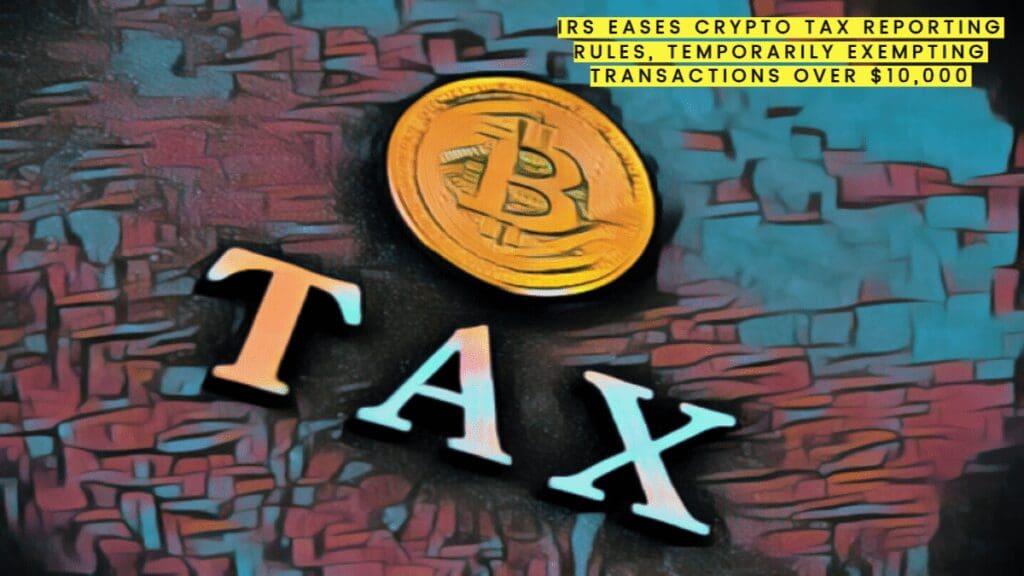- The IRS temporarily suspends the enforcement of reporting cryptocurrency transactions above $10,000 until regulatory guidelines are established.
- Cryptocurrency advocates see this as a positive development, offering relief amidst uncertainties in reporting requirements.
- The U.S. House Committee supports the temporary measure but highlights ongoing concerns with the initial poorly constructed digital asset reporting requirements.
In a recent announcement, the Internal Revenue Service (IRS) has taken a step back from enforcing the requirement for U.S. businesses to report cryptocurrency transactions exceeding $10,000. This decision is a result of a revision to the Infrastructure Investment and Jobs Act (IIJ Act) by the Treasury and the IRS, as revealed in a statement on January 16.
Temporary Relief Amidst Reporting Uncertainty
The enforcement of the law, effective January 1, mandated all U.S. businesses to report cryptocurrency transactions above $10,000. However, the IRS has opted to temporarily withhold the implementation of this rule until a regulatory framework is established.
The IRS clarified that, at present, digital assets are not a determining factor when assessing whether cash received in a single transaction or related transactions surpasses the reporting threshold.
Challenges and Concerns from the Crypto Community
The initial rules met with resistance from the cryptocurrency community, with Jerry Brito, the executive director of Coin Center, expressing concerns about the difficulty of compliance without comprehensive guidance from the IRS. He highlighted the risk of filers attempting to comply with the law but facing potential felony charges due to uncertainties.
Upcoming Regulations and Public Input
The IIJ Act mandates taxpayers to report cash receipts exceeding $10,000 within 15 days of the transaction, considering digital assets as cash under Section 6050I of the Act. However, the impact on U.S. cryptocurrency users is currently on hold, awaiting proposed regulations from the IRS and the Treasury.
While both entities have expressed the intent to introduce regulations regarding digital asset reporting, the timeline for their release remains unspecified. Additionally, the IRS plans to open the floor for public commentary on the structure of these regulations.
Positive Reception and Lingering Concerns
The Blockchain Association, which advocates for digital assets, welcomed the temporary relief as a “positive step forward” given the complexities associated with reporting cryptocurrency transactions. However, the U.S. House Committee acknowledged the temporary measure as a “stopgap action” while emphasizing persistent issues with the “poorly constructed digital asset reporting requirements” enacted on January 1.
IRS states 6050I–a problematic provision of the infrastructure bill requiring reporting digital asset transactions over $10K–isn't effective until there's more rulemaking. A positive step forward given its impossibility and breadth of reporting required.https://t.co/x8SFAQfuEh
— Blockchain Association (@BlockchainAssn) January 16, 2024

